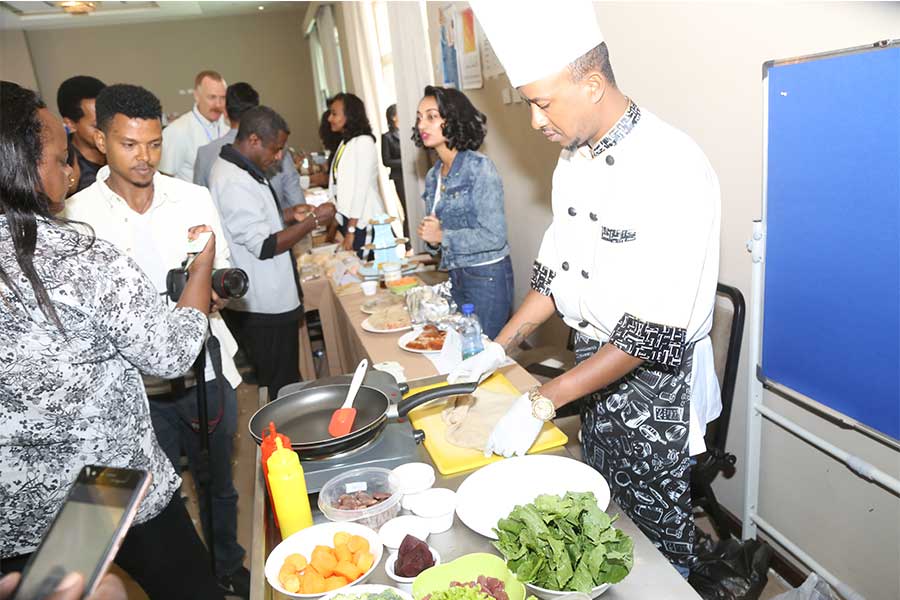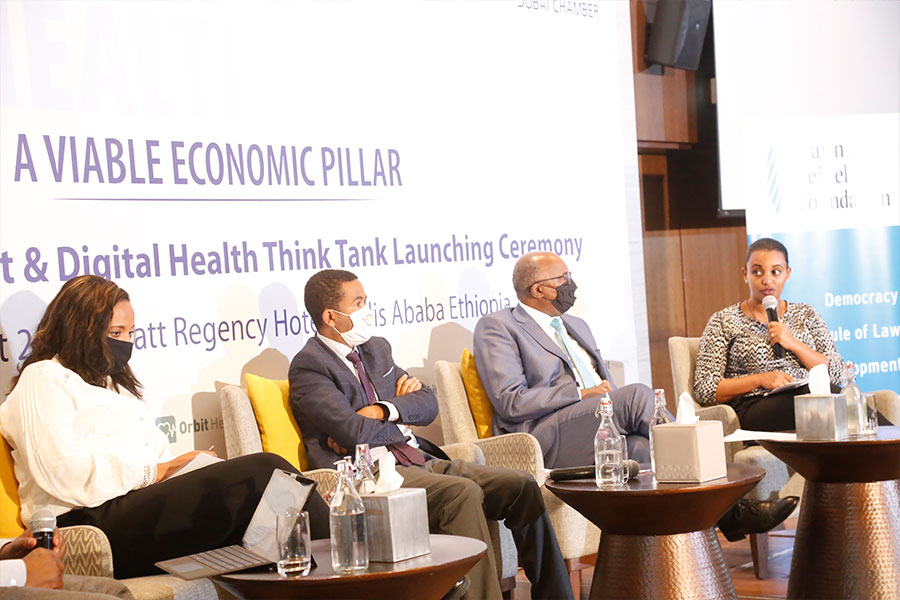
Editorial | Oct 09,2021
Nov 2 , 2024
By Axel van Trotsenburg
Poverty eradication by 2030, once a promising goal, now appears dismally distant. Nearly 700 million people worldwide live on less than 2.15 dollars a day. Tepid economic growth, COVID-19, conflicts, and climate crisis are to blame for this slowdown. In this commentary provided by Project Syndicate (PS), Axel van Trotsenburg, a senior managing director of development policy and partnerships at the World Bank, writes blame is not the cure.
Progress on poverty reduction has slowed almost to a standstill in recent years. With nearly 700 million people living on less than 2.15 dollars a day, the world is far from achieving the goal of eradicating extreme poverty by 2030. At the current pace, it will take at least three decades to reach this target, and more than a century to lift everyone above the poverty line of 6.85 dollars a day used for upper-middle-income countries.
Today, 44pc of the global population falls below this threshold.
Tepid economic growth, the COVID-19 pandemic, ongoing conflicts, and the escalating climate crisis have disrupted—and even reversed—a quarter-century of extraordinary progress. During this period, the share of the world's population living in extreme poverty plunged from around one-thrid to one-tenth. While high-income countries have largely recovered from these setbacks, extreme poverty in the poorest countries is still higher than in 2019, and their growth is expected to be weaker than in the decade before the pandemic.
And as global warming accelerates, nearly one in five people will likely experience an extreme weather event from which they will struggle to recover, exacerbating poverty.
According to the World Bank's new "Poverty, Prosperity, and Planet Report", altering this trajectory requires recognising that poverty, shared prosperity, and climate risks are interconnected. In response, countries should foster faster and more inclusive growth while also shielding people from the effects of climate change.
Addressing inequality can play an important role in achieving these interconnected goals. In the world's most unequal countries, economic growth leads to a smaller reduction in poverty. If every country experienced annual per capita income growth of two percent, it would take another 60 years to eliminate extreme poverty. But, if the Gini index – a measure of income inequality – in every country were to decrease by two percent annually, that target would be reached in 20 years.
High levels of inequality also prevent the less well-off from climbing the socioeconomic ladder, depriving them of opportunities to improve their lives. Delivering better-functioning labour markets, investing in education and health, and strengthening social safety nets would enable poor people to benefit from economic growth.
Each country's path forward should be tailored to its specific circumstances to deliver the best possible outcomes across these dimensions while managing tradeoffs. For low-income countries supported by the World Bank's International Development Association (IDA), that means promoting faster and more inclusive growth and increasing investment in public services and infrastructure to improve access to education and create jobs. Because these countries are home to 70pc of all people living in extreme poverty and produce minimal greenhouse gas (GHG) emissions, their anti-poverty efforts do not come at a high environmental cost.
The focus in lower-middle-income countries should be on delivering sustained growth and shared prosperity, and improving the efficiency of policies to boost income, build climate resilience, and keep GHG emissions in check. Scaling up investment in climate mitigation is especially important because the emissions of many middle-income countries are projected to rise over the coming decades. Such investments could also lead to better health outcomes, such as reducing air pollution.
Lastly, upper-middle-income and high-income countries, which account for four-fifths of global carbon dioxide emissions, should rapidly phase out their dependence on fossil fuels and lead the green transition. Although GHG emissions are projected to decline under current policies, the pace is not nearly fast enough to limit global warming.
Ending poverty and boosting shared prosperity on a livable planet requires bold policy choices, coordinated global action, and a significant increase in financing for sustainable development. This would allow low-income countries to invest in improving their people's lives and livelihoods. Today, the world has a historic opportunity to overcome the injustices and mitigate the dangers of entrenched poverty, systemic inequality, and climate change.
We must not squander this chance to make meaningful, lasting progress toward broad-based prosperity.
PUBLISHED ON
Nov 02,2024 [ VOL
25 , NO
1279]


Editorial | Oct 09,2021

Viewpoints | Apr 01,2023

Fineline | Jan 25,2020

In-Picture | Oct 19,2019

Commentaries | Oct 02,2021

Fineline | Dec 21,2019

Editorial | Jul 18,2021

Radar | Aug 28,2021

Commentaries | Mar 01,2024

Commentaries | Jan 22,2022

My Opinion | 131548 Views | Aug 14,2021

My Opinion | 127903 Views | Aug 21,2021

My Opinion | 125879 Views | Sep 10,2021

My Opinion | 123509 Views | Aug 07,2021

Dec 22 , 2024 . By TIZITA SHEWAFERAW
Charged with transforming colossal state-owned enterprises into modern and competitiv...

Aug 18 , 2024 . By AKSAH ITALO
Although predictable Yonas Zerihun's job in the ride-hailing service is not immune to...

Jul 28 , 2024 . By TIZITA SHEWAFERAW
Unhabitual, perhaps too many, Samuel Gebreyohannes, 38, used to occasionally enjoy a couple of beers at breakfast. However, he recently swit...

Jul 13 , 2024 . By AKSAH ITALO
Investors who rely on tractors, trucks, and field vehicles for commuting, transporting commodities, and f...

Jun 28 , 2025
Meseret Damtie, the assertive auditor general, has never been shy about naming names...

Jun 21 , 2025
A well-worn adage says, “Budget is not destiny, but it is direction.” Examining t...

Jun 14 , 2025
Yet again, the Horn of Africa is bracing for trouble. A region already frayed by wars...

Jun 7 , 2025
Few promises shine brighter in Addis Abeba than the pledge of a roof for every family...

Jun 29 , 2025
Addis Abeba's first rains have coincided with a sweeping rise in private school tuition, prompting the city's education...

Jun 29 , 2025 . By BEZAWIT HULUAGER
Central Bank Governor Mamo Mihretu claimed a bold reconfiguration of monetary policy...

Jun 29 , 2025 . By BEZAWIT HULUAGER
The federal government is betting on a sweeping overhaul of the driver licensing regi...

Jun 29 , 2025 . By NAHOM AYELE
Gadaa Bank has listed 1.2 million shares on the Ethiopian Securities Exchange (ESX),...